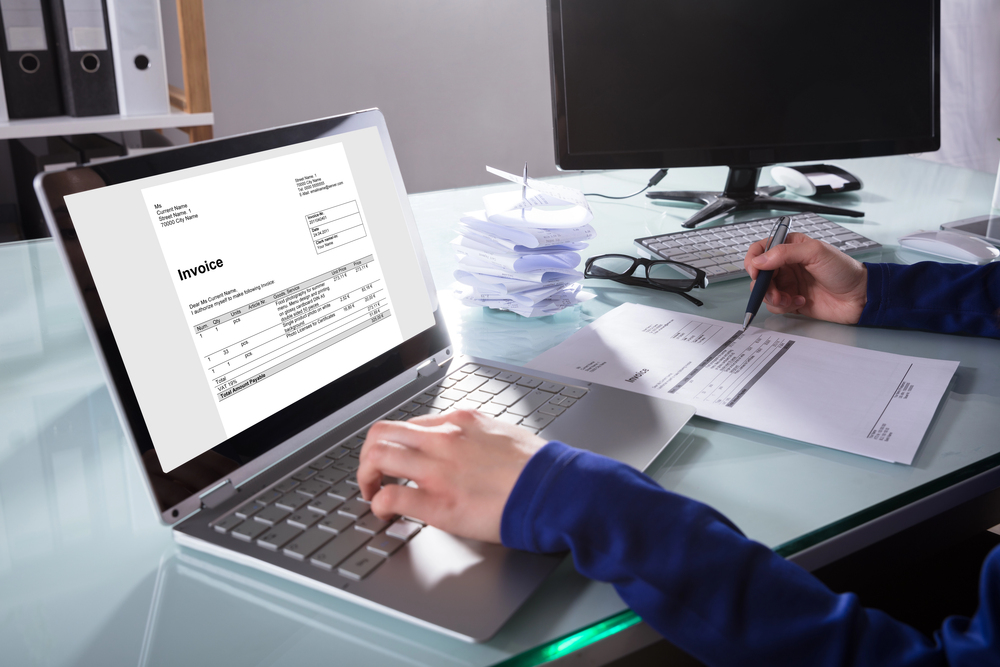Electronic invoicing, or e-invoicing, is transforming how businesses manage billing and payment processes. By replacing paper-based systems with digital solutions, organizations benefit from increased efficiency, reduced costs, and enhanced accuracy. Whether you're a freelancer, small business owner, or enterprise-level company, e-invoicing can deliver significant advantages that improve your financial operations.
Verdict
Electronic invoicing offers a faster, smarter, and more secure way to handle billing. From automated workflows and real-time tracking to improved compliance and reduced environmental impact, e-invoicing is a vital upgrade for any business wanting to modernize its operations. The ROI is measurable - lower administrative costs, faster payments, and fewer errors.

What Is Electronic Invoicing?
Electronic invoicing is the process of sending, receiving, and storing invoices in a digital format. Unlike scanned paper invoices or PDF attachments, true e-invoices are generated and processed electronically from end to end, often integrating directly with accounting and ERP systems.
How It Works
The process typically includes:
- Creating the invoice in accounting or invoicing software
- Sending the invoice via a secure digital channel (often EDI or XML format)
- Receiving the invoice directly into the client’s system for approval and payment
- Archiving it electronically for auditing and compliance
Key Benefits of Electronic Invoicing
1. Cost Reduction
Switching to electronic invoicing eliminates printing, postage, and storage costs. Businesses save money by reducing paper usage and streamlining invoice processing times.
2. Faster Payments
Digital delivery and real-time tracking result in quicker approvals and payment cycles. E-invoicing reduces delays caused by lost or misrouted paper invoices.
3. Fewer Errors
Automated invoice generation reduces manual entry, minimizing common errors such as incorrect amounts or duplicate billing.
4. Improved Cash Flow
Faster processing and payment lead to better cash flow management, helping businesses maintain financial stability and plan growth more effectively.
5. Better Compliance
Many countries mandate or incentivize electronic invoicing for tax reporting and audits. E-invoicing ensures compliance with VAT, GST, and other regulations by storing transaction records securely.
6. Enhanced Security
Electronic invoices are encrypted and transferred through secure channels, significantly reducing the risk of fraud, loss, or unauthorized changes.
7. Environmental Sustainability
Reducing paper usage contributes to environmental conservation and helps businesses meet corporate social responsibility goals.
8. Real-Time Tracking and Reporting
Track invoice status, view payment timelines, and generate detailed financial reports instantly.
Tables
Comparison of Traditional vs. Electronic Invoicing:
| Feature | Traditional Invoicing | Electronic Invoicing |
| Delivery Time | 2-7 days | Instant |
| Cost | High (paper, postage) | Low (digital processing) |
| Error Rate | High (manual entry) | Low (automated) |
| Security | Low | High (encryption, traceability) |
Types of Invoices
Electronic invoicing can support a variety of invoice types depending on business needs:
- Standard Invoices
- Recurring Invoices
- Proforma Invoices
- Credit Memos
- Timesheet Invoices
- Expense-Based Invoices
Software That Supports Electronic Invoicing
Many software tools are optimized for electronic invoicing and offer integrations with accounting platforms, tax systems, and payment gateways:
- QuickBooks: Automates recurring billing, integrates with banks and vendors

✔ Best choice for small businesses
✔ Automated online banking system
✔ Create estimates & Reports
✔ Get a 30-day free trial
- FreshBooks: Ideal for small businesses and freelancers, supports multi-currency invoicing

✔ Best choice for small and mid businesses
✔ Fast payment setup
✔ Great customer service
✔ Get 30-day free trial (not required creadit card)
- Xero: Offers real-time tracking and audit trails for compliance

✔ Simplifies bookkeeping, saves time and helps to grow your business.
✔ Mobile app gives you anytime access to financial information.
✔ Customer support team is dedicated to help you succeed.
✔ Free no-commitment 30-day free trial.
- Zoho Invoice: Customizable templates, recurring billing, client portals

✔ Provides multiple payment gateways.
✔ Integrates with other Zoho apps to streamline workflow.
✔ Supports multiple languages and currencies.
✔ Offers a free plan for small businesses.
- Billdu: Mobile-friendly invoicing with expense tracking and automatic reminders
Pros and Cons
Pros
- Faster payments and improved cash flow
- Lower operating costs
- Compliance with international tax standards
- Scalable for businesses of all sizes
Cons
- Requires initial setup and software adoption
- May need staff training
- Dependence on internet connectivity and software reliability
Conclusion
Electronic invoicing is a modern business necessity, offering tangible benefits across every industry. From cost savings to environmental impact and regulatory compliance, e-invoicing gives businesses the tools to streamline financial processes and scale efficiently. As more regions adopt digital tax mandates, transitioning to electronic invoicing isn’t just smart—it’s inevitable.





